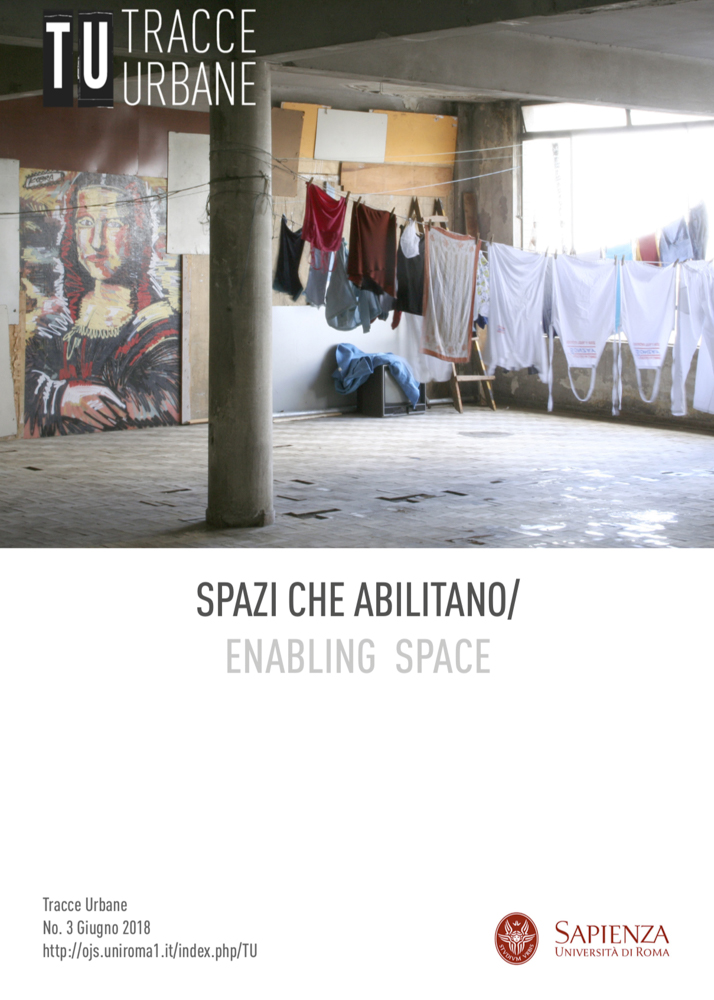Funding the Cooperative City From knowledge network to local action
DOI:
https://doi.org/10.13133/2532-6562_2.3.14279Parole chiave:
Economia collaborativa, Proprietà condivisa, Occupazione locale, Trasferimento di conoscenza, Cooperazione di molteplici stakeholderAbstract
In recent years, cultural, social, community and educational spaces have become laboratories of new forms of living, working, learning and collective exchange. However, these civic spaces face many difficulties in establishing stable economic structures, or lack financial buffers to secure their long-term operations and relative autonomy. This book brings together a variety of actors, practices, models, mechanisms and opinions that address these difficulties: our intention is to use these experiences to help and inspire civic space initiatives in accessing community capital, building stable financial models, strengthening local economies by keeping profits in neighbourhoods and ensuring spaces against public oppression or the extraction economy.
Riferimenti bibliografici
Harvey, D. (2010). The Enigma of Capital and the Crises of Capitalism. London: Profile books, p.166
Waterhout, B., Othengrafen, F. and Sykes, O. (2013). Neo-liberalization Processes and Spatial Planning in France, Germany, and the Netherlands: An Exploration. Planning Practice & Research, 28(1), p.143
de Graaf, R. (2015). Architecture is now a tool of capital, complicit in a purpose antithetical to its social mission. In Architectural Review. Retrieved from https://goo.gl/ktd2rq
Vanstiphout, W. (2012). The Historian of the Present. In Future Practice. Conversations from the Edge of Practice edited by Rory Hyde. New York and London: Routledge, p.94
Rolnik, R. (2013). Late Neoliberalism: The Financialization of Homeownership and Housing Rights. International Journal of Urban and Regional Research 37(3), pp.1058–66, p.1059
Donald, B., Glasmeier, A., Gray, M. and Lobao, L. (2014). Austerity in the city: economic crisis and urban service decline? Cambridge Journal of Regions, Economy and Society, 7, p.4
Swyngedouw, E. (2005). Governance Innovation and the Citizen: The Janus Face of Governance-beyond-the-State. Urban Studies, 42(11), pp.1991–2006
Purcell, M. (2009). Resisting neo-liberalization: Communicative planning or counter-hegemonic movements? Planning Theory, 8(2), p.145
Swyngedouw, E., Ibid., p.1998
Rossi, U. (2013). On Life as a Fictitious Commodity: Cities and the Biopolitics of Late Neoliberalism. International Journal of Urban and Regional Research, 37(3) pp.1067–74
##submission.downloads##
Pubblicato
Come citare
Fascicolo
Sezione
Licenza
NOTA DI COPYRIGHT
Proposta di licenza Creative Commons
1. Proposta per riviste Open Access
Gli autori che pubblicano su questa rivista accettano le seguenti condizioni:
Gli autori mantengono i diritti sulla loro opera e cedono alla rivista il diritto di prima pubblicazione dell'opera, contemporaneamente licenziata sotto una Licenza Creative Commons - Attribuzione che permette ad altri di condividere l'opera indicando la paternità intellettuale e la prima pubblicazione su questa rivista.
Gli autori possono aderire ad altri accordi di licenza non esclusiva per la distribuzione della versione dell'opera pubblicata (es. depositarla in un archivio istituzionale o pubblicarla in una monografia), a patto di indicare che la prima pubblicazione è avvenuta su questa rivista.
Gli autori possono diffondere la loro opera online (es. in repository istituzionali o nel loro sito web) prima e durante il processo di submission, poiché può portare a scambi produttivi e aumentare le citazioni dell'opera pubblicata (Vedi The Effect of Open Access).


